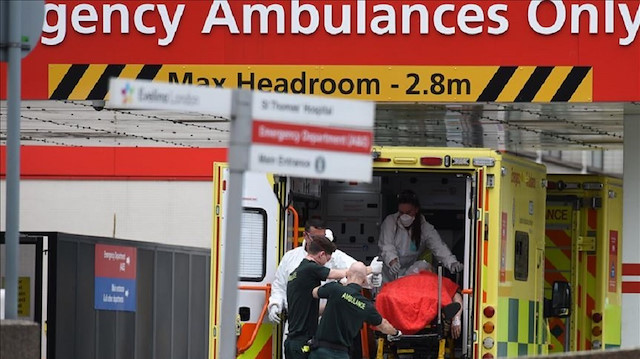
Britain has been hit particularly hard by coronavirus among all other European countries
England had the highest level of excess deaths in Europe over the first half of 2020, according to new statistics published by the UK’s official statistics agency on Thursday.
“While England did not have the highest peak mortality, it did have the longest continuous period of excess mortality of any country compared, resulting in England having the highest levels of excess mortality in Europe for the period as a whole,” the Office for National Statistics (ONS) said.
Spain was the European country with the highest peak, and Bergamo in northern Italy was the European local authority posting the highest peak.
Edwin Morgan, from the ONS’ health division, said: “While none of the four UK nations had a peak mortality level as high as Spain or the worst-hit local areas of Spain and Italy, excess mortality was geographically widespread throughout the UK during the pandemic, whereas it was more geographically localised in most countries of Western Europe.
“Combined with the relatively slow downward ‘tail’ of the pandemic in the UK, this meant that by the end of May, England had seen the highest overall relative excess mortality out of all the European countries compared.”
Health Secretary Matt Hancock said the UK was prepared to add further countries to its list of at-risk countries, which would require Brits to quarantine on their return for two weeks.
Belgium, Luxembourg and Croatia were all being looked at, after the government’s snap decision on Spain earlier this week.
“I’d love people to be able to go abroad and I love travelling but in the middle of a global pandemic we just have to be realistic about the fact that these things change because the pandemic changes in other countries,” Hancock told the BBC.
“That’s why we had to act so fast on Spain and I have absolutely no regrets in acting as fast as we did. It was incredibly important that we made that move so fast,” he said.
“You can see the increases in cases. You can see the sharp increase we saw in Spain and hence we took the rapid action that we did,” he said. “You can see increases in some other countries and we’ll take the rapid action that we need to.”
Prime Minister Boris Johnson said on Tuesday: “What we have to do is take swift and decisive action where we think that the risks are starting to bubble up again.”
“Let’s be absolutely clear about what’s happening in Europe: Amongst some of our European friends, I’m afraid you are starting to see in some places the signs of a second wave of the pandemic,” he said.
The UK government also updated its advice to the general population so that those who test positive for coronavirus now have to self-isolate for 10 days, rather than the previous seven.
Britain’s four chief medical officers said evidence had “strengthened” that there was “a low but real possibility of infectiousness” in people who have coronavirus for up to nine days after catching the virus.
They said that the decision would “help provide additional protection to others in the community,” and “in advance of the autumn and winter when we may see increased community transmission.”
“It’s something I worry about and I worry about it because we can see it coming,” he said.
A new study by Oxford University suggested that 7.1% of Brits -- one in 14 people -- already had the virus, as they had coronavirus antibodies that appear after being infected.


